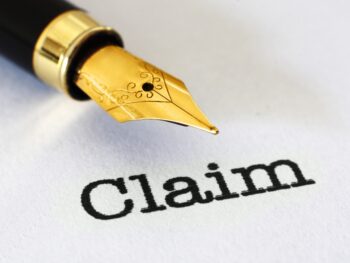Running a business in today’s economic world involves various factors that can keep even the best of business men and women awake at night.
One of the keys to any successful business operation is making sure that the financial ledger stays in the black and does not dip into the red. If it does the latter, getting it out of there as quickly as possible is crucial.
With that in mind, under reserving is a topic that all businesses should be aware of.
To put things in perspective, keep in mind that a workers compensation claim is in fact a legal obligation. In turn, a claim reserve is a prepared estimate for what the workers comp claim will in fact cost.
Click Link to Access Free PDF Download
“How Do I Get My Adjusters To Follow My Account Handling Instructions?”
At the point where the adjuster overseeing the workers comp claim places a reserve on the claim file, it then is a definite monetary figure that is set aside to compensate the expense down the road of the workers comp claim.
In viewing things through the accounting window, the claim is an incurred liability, this even though it will be paid down the road. At the time the adjuster establishes the reserve, the business is then denied the ability to use a monetary figure that was set aside to compensate the workers comp claim.
When Reserves Go Bad
A company’s financial status will change at the point when there are inaccurate reserves.
In cases where you have reserves at too high a level, funds the business could put to use in other avenues of the company prove no longer available. In instances where the reserves turn out to be too small, the business must deal with an under-funded liability, leading to a shortfall over time.
So, what is the worst scenario of the two presented?
In many cases, financial experts will state that being in an under-reserving position is the worst of the two scenarios, with a simple reason being that the self-insured business owner or the insurer itself needs to have reliable reserves in hand to handle their financial responsibilities.
Ratings Can Be Impacted
Another reason why this can hurt businesses, especially the insurer itself, is company ratings.
The better-known rating firms like A.M. Best, Standard & Poor’s, and Fitch Ratings calculate the monetary stability of insurance companies by gauging their ability to meet their claim responsibilities. If their available surplus falls to an unacceptable level, their financial stability rating falls too.
Another thought to keep in mind regarding under reserving is the impact on the calculation of premiums down the road.
The reserves for the open claims are a portion of the calculations in establishing the loss experience of the business. In the event a loss experience is under stated due to the fact the reserves are understated, the insurer will be charging inadequate premiums.
When this happens, you end up with lower profits for the business.
Author Michael B. Stack, CPA, Principal, Amaxx Risk Solutions, Inc. is an expert in employer communication systems and part of the Amaxx team helping companies reduce their workers compensation costs by 20% to 50%. He is a writer, speaker, and website publisher. www.reduceyourworkerscomp.com. Contact: mstack@reduceyourworkerscomp.com.
©2014 Amaxx Risk Solutions, Inc. All rights reserved under International Copyright Law.
WORK COMP CALCULATOR: http://www.LowerWC.com/calculator.php
MODIFIED DUTY CALCULATOR: http://www.LowerWC.com/transitional-duty-cost-calculator.php
WC GROUP: http://www.linkedin.com/groups?homeNewMember=&gid=1922050/
SUBSCRIBE: Workers Comp Resource Center Newsletter
Do not use this information without independent verification. All state laws vary. You should consult with your insurance broker, attorney, or qualified professional.














